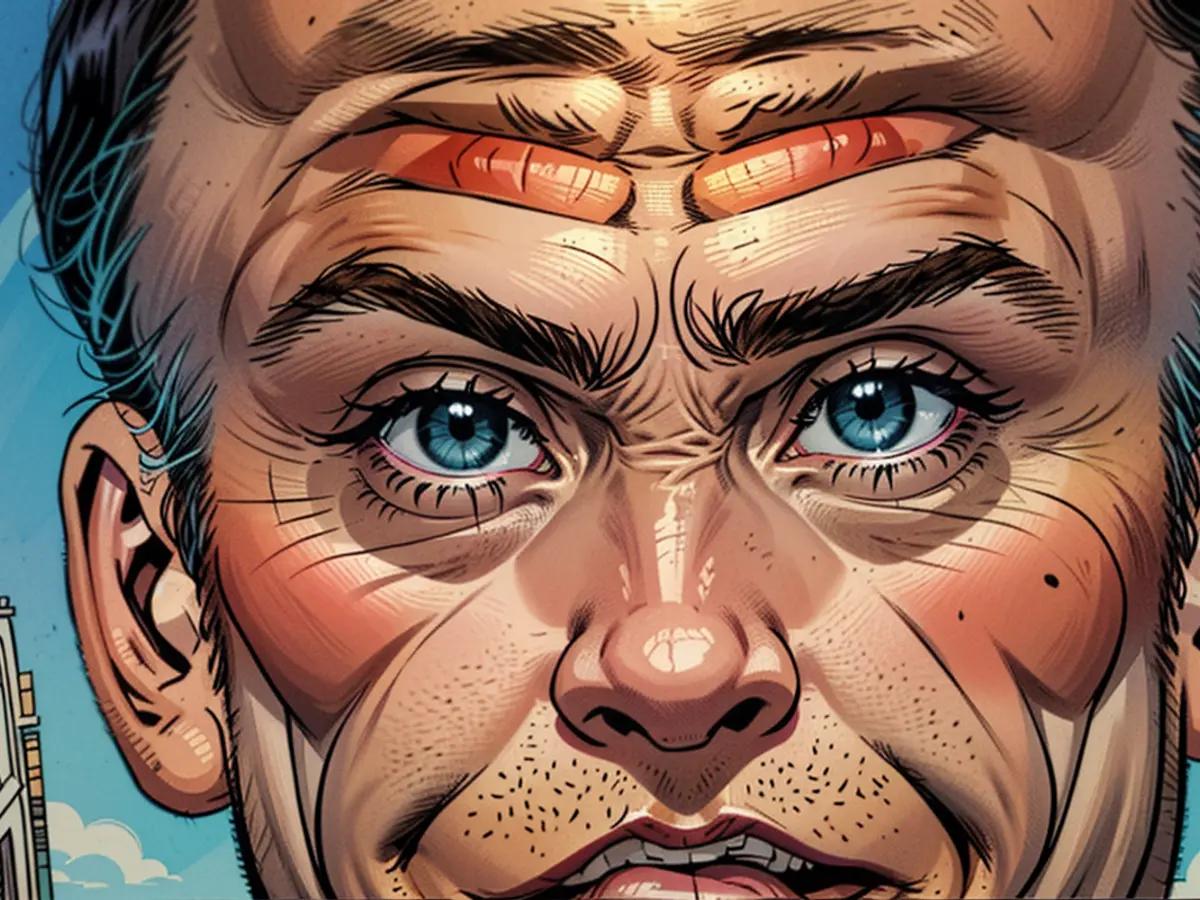Prior to the parliamentary vote - Macron engages in poker games to gain backing from other factions.
President Emmanuel Macron of France has urged representatives from Social Democrats, Conservatives, and Greens to team up with his center-ground party to form the next government. He expressed eagerness to work with anyone not associated with the far-left or far-right extremes. On Wednesday in Paris, Macron stated, "I am inviting this new era in political life with immense humility and resolve."
He continued, "I'm confident that Social Democrats, Radicals, Environmentalists, Christian Democrats, Gaullists, and, in essence, many of our fellow citizens and politicians who do not remain in the realm of the extremist hysteria can unite with these key players to create a new plan to govern."
In response to his liberal forces' defeat in the European elections and the overwhelming victory of the far-right National Rally on Sunday, Macron made a surprising decision to disband the National Assembly and announced new parliamentary elections for June 30 and July 7. His office is not in jeopardy.
Macron criticized the announced alliances between the opposition parties. "There are highly unnatural partnerships on both extremes that do not have a common bond," he remarked. These alliances were formed, but they lacked the capacity to govern.
A Storm of Anger in the Republicans
The communists, greens, socialists, and leftists in France had declared they would collaborate. Interestingly, Eric Ciotti, the head of the conservative Republicans, announced on Tuesday that he wished to forge an alliance with the far-right National Rally led by Marine Le Pen.
Ciotti's announcement generated a massive wave of indignation within his conservative party. Party leaders demanded his resignation and dispelled him from the party, as reported by the media. Ciotti had updated party employees at the headquarters to exit and lock the doors during the removal vote to hinder the process. The once powerful party is now in the midst of a crisis.
What prompts Macron to make this decision?
Macron explained his decision for fresh elections, which perplexed the French people, by citing the political standstill in the government. His center-ground party has not held an absolute majority in the National Assembly for two years, and attempts to form coalitions and multi-party alliances have been ineffective. As a result, he said the government is at a standstill, which he deemed risky for France. Additionally, the opposition announced a motion of no confidence for the fall.
The outcome of whether President Macron will secure an absolute majority in the National Assembly through the elections or if the far-right National Rally takes on government responsibility is unknown at this time. According to an Ifop Institute survey, the National Rally gains 35% support, the Left Bloc 25%, and the government camp 18%, but these figures don't provide insight into the future distribution of seats in the National Assembly. In France, a majority voting system is applied, meaning the candidate receiving the most votes in the second round of voting secures a seat in parliament.
Read also:
- In the wake of this decision, Eric Ciotti, the Head of the conservative Republicans, sought an alliance with the far-right National Rally, led by Marie Le Pen.
- The upcoming parliamentary elections in France on June 30 and July 7 are a direct result of President Emmanuel Macron's decision to disband the National Assembly.
- Emmanuel Macron, the Head of state in France, has shown interest in forming alliances with various parties, excluding far-left and far-right extremists.
- Amidst the political crisis, the Rassemblement National, another far-right party, has gained significant support in the European elections, posing a challenge to Macron's center-ground party.
- The parliamentary election in France will not only determine Macron's party's fate but also the role of other parties, such as the Rassemblement National and the opposition parties, in the French government.
- In the aftermath of the European elections, Emmanuel Macron's center-ground party suffered a defeat, which potentially paved the way for new parliamentary elections and a potential shift in France's political landscape.








